Subscribe to MacroMashup News
Summary + Key Takeaways:
- The global economy is shifting from a U.S.-Europe-Asia model to a two-player game between the U.S. and China [1:15–1:42]
- Global sovereign debt levels are dangerously high due to post-GFC money printing and pandemic stimulus [1:44–2:24]
- The Fed misjudged inflation as transitory, leading to unintended consequences in asset markets and consumer prices [2:00–2:12]
- U.S. debt may not collapse the system immediately, but the growing debt-to-GDP ratio is unsustainable [4:43–5:19]
- AI could be the next “magic trick” that boosts productivity and temporarily offsets inflationary pressure [3:20–3:39]
- Bitcoin is emerging as a serious alternative asset and potential reserve hedge, particularly if adopted institutionally [12:19–13:44]
- Stablecoins like Tether may become major buyers of U.S. Treasuries, replacing traditional foreign demand [15:32–17:55]
- The U.S. might explore innovative solutions such as gold-backed Treasuries, Bitcoin reserves, or a strategic Golden Visa program to manage the debt [4:05–4:18]
- The stock market is hooked on liquidity and growth; a healthy pullback could reset long-term fundamentals [5:22–6:43]
- Bitcoin is a 24/7, globally trusted, fixed-supply asset—making it a powerful hedge in a system driven by debasement [12:25–13:20]
- Institutions are no longer asking whether to hold Bitcoin—they’re asking how much [13:44–14:00]
- Most of crypto is venture capital in token form, but Bitcoin stands alone as a store of value with a long-term thesis [14:28–15:19]
- The conversation touches on the structural weaknesses in the U.S. economy, wealth inequality, and how the current administration is attempting to rebalance through tariffs, reshoring, and inflationary debt management [6:10–7:09]
- Crossing the chasm: The career risk has shifted—now it’s riskier to ignore Bitcoin than to embrace it [24:26–24:39]
Transcript
It's like a huge sort of Game of Thrones scenario that's going on now in the world.
If there’s a magic trick, it’s AI—and the productivity that comes from AI. And you know, Elon was even out there today talking about how he sees tremendous wealth being built in the world in the next decades or so.
Why are they getting involved in Bitcoin?
Could Bitcoin be a way out for them, paying off the debt?
One of the things you start realizing when you're trading assets for your account is...
Welcome to the Macro Mashup Podcast!
I'm your host, Neil Winward.
This podcast is sponsored by Dakota Ridge Capital—your energy investments partner, helping developers partner with family offices, banks, and corporations to make smart clean energy deals and maximize government tax incentives.
Macro Mashup’s Steve Belotti —welcome to Episode Two of Macro Mashup.
Steve: Yeah, sounds good, Neil. I’m pleased to be here.
Neil:
No, it’s good to see you. And just for the benefit of the subscribers, Steve has the dubious pleasure of having been my boss during a relatively brief window at an organization that doesn’t exist anymore.
But while he was there, I think it was a pretty fun place to be.
Why don’t you give me your thoughts on what you think about the global economy? Since you’ve been in all these different places, it’d be interesting to get your perspective on that.
Yeah, I think the big picture is that it’s always been about the U.S. first and foremost, and then probably Europe, then Asia-Pac. China has come along, and now it's about the U.S. and China.
So that’s the big change in the last 20 years.
Interestingly enough, when China joined the World Economic Forum, they boomed ever since. So geopolitically, economically, etc.—it's more about them and the U.S., but it’s still, at this point, about the U.S. It’s the biggest capital market, etc.
I think the other dominant theme is the global sovereign debt levels that have been built up—starting with the GFC back in '08–'09, and then the coronavirus issue we had in the early '20s.
And along the way, the lack of fiscal responsibility by both sides in the U.S.—we printed tremendous amounts of money. At the time, the Fed, etc., were saying:
“There’s nothing to see here, it’s all transitory, there will be no inflation.”
Of course, if you print a lot of money and you're chasing fewer goods and services—prices go up, last time I checked.
So to me, the big themes now—putting geopolitics aside for a moment—are:
- Addressing these deficits
- Addressing debt levels at European levels, Asian levels, and in particular, the U.S.
A lot of people are losing their minds over the current administration. I think it was Brent Johnson—the "Dollar Milkshake" guy—who said:
“It’s like a huge Game of Thrones scenario that’s going on now in the world.”
A lot of countries have had to sell U.S. assets because they own debt in U.S. dollars, and a strong dollar has been painful for them.
So capital we need to keep our debt bubble going is being withdrawn, one way or another.
His view?
We’re either going to hyperinflate, inflate our way out of this, or something else will happen—something more like a "magic trick" or sleight of hand.
But I think that kind of initiative is getting more airplay now. Maybe you could talk about that for a little bit.
If there’s a magic trick, it’s AI—and the productivity that comes from AI. Elon was even out there today saying he sees tremendous wealth being built in the next few decades because of AI.
It could be the Fourth Turning... who knows. But my point would be that we’ve built a house of cards—built on debt rather than productivity.
If you look at what's going on with Doge, etc., and all the noise that goes with it—the sniping, the speculation—at the end of the day, you're right:
You've got to remove yourself from the game, and look at the game, rather than be in the game and be emotional about it.
You’ve got to understand who’s in power and who’s not.
To me, I think what Trump and this administration are trying to do is actually change the game, to a certain degree—once and for all. And you're seeing that through things he’s delivering on, whether it’s tariffs, or whether they're looking into the gold reserves, which you and I have discussed in the past.
Why are they getting involved in Bitcoin?
Could Bitcoin be a way out for them—paying off the debt?
With their Golden Visa program:
If they sold 7 million of those at $5 million apiece, that’s $35 trillion.
The debt is gone.
And would there be 7 million people who want to live in the U.S. permanently—who are not paying offshore taxes but onshore taxes?
Probably.
Now, maybe they only get to 1 million—but the administration is trying new things. And it's scraping away the buildup—the plaque—in the government arteries that nobody else has really attempted to clean out.
So, it doesn’t matter which side of the aisle you're on, you've got to at least say:
“We needed to clean it up. We need to do something.”
But I would say this:
The U.S. could kick the can down the road for 20 years, as far as I’m concerned.
They could have, within 5 to 10 years, $65 trillion in debt.
They could have a GDP of, say, $40 trillion.
And they’re still at 130–140% debt-to-GDP.
So it’s not a disaster—because it works today. And the whole system is built on inflation anyway. It’s built on the fractional reserve banking system and credit creation.
If you start to change that...
- Technology is very deflationary.
- AI is going to be extremely deflationary.
But the forces that be want to continue to create inflation, so they can inflate the debt away.
I just don’t think they’ll do it at 10% yields. I think they’ll try to do it at 2%, 3%, 4%, maybe 5% yields—over a very long period of time with fiscal responsibility. That’ll eventually get it under control.
Now, to the U.S. stock market, which everyone thought Trump had the “Fed put” and was the savior of the stock market, etc.
But really—it hasn’t done anything.
- When he got in, it went down.
- When he started talking about tariffs, it stalled.
- And now it’s just… sitting here.
I think markets have gotten hooked on going up—every week, every month. So having a reset, having a pullback of 10 or 20% in my mind—that’s just a pullback. It’s healthy.
Another interesting perspective I heard recently:
We’re going through a paradigm shift.
Everything has worked great for the K-shaped recovery, where the upper echelon of the economic demographic has done really well, and asset prices have been supported by liquidity.
But Main Street hasn’t done so well.
And this is what Scott Bessent said over the weekend. He said:
“Look, we’re doing a bit of a reset here—for the benefit of Main Street. That’s what we’re doing. We’re bringing jobs back, trying to get things built onshore. We're trying to deliver value to the middle and lower demographic that hasn’t done so well.”
If Wall Street has a few lumps to take, that’s fine. They’ve done well enough for long enough.
I don’t know whether we’ll be able to make that paradigm shift, but it certainly sounds like what Trump ran on. And I think they’re actually serious about it—unless the stock market goes down 30–40%.
But I don’t see that happening.
Because they’re telegraphing what they’re doing pretty clearly and transparently.
All of his main lieutenants are in the press...
Every other day, if not every day, you can see what they’re trying to do—and probably, it’s the right thing to do.
But can they really change the situation?
It was getting pretty uneven out there in terms of society and economics—between the rich and the poor. I do think, though, what they’re doing is good for the stock market—medium and long term. Meaning a year or two from now, where you’re moving from the public sector to the private sector.
If you think about it, 25–30% of the jobs in the United States are at the government level. And that’s just too much. A better number might be 10–15%. Can they get there? I don’t know.
Is Elon going to save $2 trillion? I don’t think so.
Are they going to balance the budget? Probably not.
Are they going to cut the deficit down? Absolutely.
Because there’s one thing for sure, Neil:
The biggest gorilla in the room is the debt.
If yields get away from us, and people stop buying U.S. Treasuries, the U.S. has got a real problem—because the only alternative is to print the money at the Fed level. The Treasury will issue, and the Fed will buy the bonds. The Fed’s balance sheet will grow dramatically—blowing out to $40, $45, $50 trillion—and things won’t have improved at all.
I also think—and we’ve discussed this before—that through U.S. dollar swap lines, through easing the dollar’s strength (i.e., the “milkshake theory”), the U.S. can ask other governments to buy duration. The pitch being:
“We’ll give you the swap lines—not permanently, but semi-permanently.”
So yes, there are ways to manipulate the yield curve.
You know, Judy Shelton—who almost made it to the Fed—had this idea that we should issue gold-backed Treasuries with long-dated maturity.
Would that ever happen?
The bond market’s had a rough go.
Since we got rid of ZIRP and the Fed raised rates faster than I’ve ever seen in my career—over 13 to 18 months—it’s been rocky.
Things are more "even Steven" now, but overall— Would I buy long-dated duration from the U.S. government or any other government?Probably not.
Because when push comes to shove, they always return to money printing.
If you look at the U.S. dollar, it’s been debased at an average of ~8% annually for quite some time—regardless of whether inflation is running at 1% or 5%. Split the middle and say 3%—you’re still looking at a 10–11% after-tax effective debasement.
So to break even, you need to be making 15–20% pre-tax investment returns. That’s just math.
Let’s unpack that 8% debasement, because not everyone sees it.
It’s easy to understand 3% inflation, year after year. But this is on average. Sometimes it's higher.
After COVID, for example, global debasement jumped to 11.6%. So if the U.S. is ~30% of global GDP, the other 70% is debasing even faster—maybe 14% or more.
So why are people still buying these instruments—like the S&P 500 or a 4% T-bill—knowing they're getting paid in dollars that are debasing at 8%?
The only thing I can come up with:
"That’s what they’ve done for 50 years, and that’s what they’ll do for another 50."
But they’re losing buying power by doing that.
And that loops back to your point—who is “they”?
The smart money, the wealthy, own all the assets.
The lower portion of the population doesn’t own much—so they’re not worried about debasement. They’re living paycheck to paycheck. They’re not focused on the plumbing of global finance.
The U.S. dollar, its hegemony, its sovereignty—that’s the number one export of the United States. Which makes it everyone else’s problem, as you alluded to earlier.
To me, money printing is debasement. It’s how we pay for deficits running at $3.5–5 trillion annually.
Whether we collect $4–4.5 trillion in taxes and spend $7–7.2 trillion, it’s still $3 trillion added to the existing $37 trillion.
Add in off-balance-sheet liabilities and interest...
You’re at $50–60 trillion in the next 7–8 years.
So how do you fill the gap?
You print the money—unless there’s a productivity leap, like what Luke Gromen and others have discussed.
But that kind of leap requires massive energy production—and that takes time.
We’re growing, but it’s not changing the game in the next 10 years.
I think it’s sort of fascinating, the journey you’ve made—from a career in capital markets, trading various asset classes—to pivoting in 2013 toward digital assets.
When there’s a disruptor in town, and arguably the most powerful role in the world is being disrupted, of course people are going to get upset.
If the U.S. could live on 25–30% government jobs—that’s about a third or a quarter of GDP. That knocks GDP down from 3.5% to more like 2.2–2.5%. And with inflation at 3%, you’re going backwards.
When you think about the iPhone, it put a lot of things out of business.
Moving from analog to digital isn’t just about businesses or technology—it also applies to:
- Money
- Currency
- Property
Back in 2008–2009, when Nakamoto created Bitcoin and the blockchain, people said:
“Magic internet money? What is this?”
Then they realized:
It’s just a timestamped ledger.
Then they figured out it’s distributed, global, everywhere and nowhere.
To me, Bitcoin is just another asset class. It happens to be digital, not physical or analog. It moves around the world at the speed of light, with negligible transaction costs.
But here’s the kicker:
If the social construct holds—that Bitcoin is a valuable asset—it’s already gone from nothing to $2 trillion in 16 years.
Could it reach $200 trillion?
If I already own:
- Bonds
- Real estate
- Currencies
- Gold
- Stocks
Why wouldn’t I just own a little Bitcoin?
Here’s the problem—but also the opportunity:
Bitcoin halves every four years.
By 2134, all 21 million Bitcoin will have been mined.
There is no such cap on any other asset in the world.
So from a risk-return perspective, Bitcoin is an asymmetrical bet:
In a digital, internet-based, iPhone-owned world…
Why wouldn’t you want a little in your portfolio?
And the beauty of it?
You don’t need much.
If I’m right, it’ll 100x–200x.
If Sailor’s right, even more.
Just having a small allocation could outperform the rest of your portfolio.
How can you afford not to take that bet?
That’s where institutions are now.
They’re not asking, “Should we own Bitcoin?”
They’re asking, “How can we afford not to?”
Of course, it's not just Bitcoin—you've got the entire crypto universe:
- Altcoins
- Layer 1s and 2s
- Smart contract platforms
Sure, Bitcoin is constrained—21 million max—but the rest of crypto is essentially unconstrained.
But that’s also why I think everything besides Bitcoin is just venture capital.
Ethereum, Solana, Avalanche, etc.—they’re VC plays in token form.
They're controlled. They’re centralized somewhere.
Bitcoin, by contrast, is a store of value first.
Eventually, it could become a currency—and some call it already the 6th or 7th largest currency in the world.
The Lightning Network and others will help enable that.
Remember what Saylor realized in 2021 with his “melting ice block”?
He had $600M in cash losing value. So he moved.
Since then, Bitcoin has been adopted as fast as the internet and the iPhone—and it’s becoming omnipresent in society.
Stablecoins and the U.S. Debt Puzzle
Now let’s talk about stablecoins and their role.
Their use case is pretty straightforward:
- Hold something stable
- Avoid volatility
- Avoid full fiat conversion
You don’t want to sell your Bitcoin and go back into fiat, waiting 3–5 days for a settlement. You might just want to park in something stable—that’s where stablecoins come in.
Tether, for example, has been a massive buyer of U.S. bills. Why? Because they can’t afford duration—they need low volatility.
Tether’s business model was not good when rates were zero.
But when rates went to 4–5%, suddenly they had $134B in free cash flow annually.
That’s a monster cash machine.
So if Bitcoin goes to $1 million, reaching the market cap of gold, then stablecoin demand will likely grow in proportion.
Bitcoin at $20T market cap?
Stablecoins could be at $3–4 trillion—growing even faster.
That’s new capital looking to buy Treasuries.
Why is that important?
We’ve lost foreign buyers of U.S. debt:
- China
- Saudi Arabia
- Post-petrodollar exits
So we need new buyers.
Stablecoins could be those buyers.
If you're the U.S., and you're becoming crypto-friendly, you’re laying the groundwork for that new domestic demand.
And if you’re holding Bitcoin and want to de-risk without fully exiting crypto, you go into stablecoins—not fiat.
It’s instant, global, and stable enough.
Meanwhile, the Eurodollar market (offshore USD) is bigger than the onshore.
It’s arguable that the stablecoin dollar market could become even bigger than the Eurodollar market.
Guys like Anthony Pompliano are all over this now.
So:
- Bitcoin = store of value
- Stablecoins = instant global settlement
- Both = new demand for Treasuries
Formatted Transcript – Part 3
One thing you start realizing when you’re trading assets for your own account is this:
Price is a geographic and time-limited construct.
At 4 PM Eastern every day in the U.S., prices stop—or at least, they stop officially.
Exchanges hand off responsibility around the globe as time zones change.
But with Bitcoin, it’s 24/7.
You wake up at 3 AM, open your phone—it’s trading.
That whole idea is mind-bending, especially coming from traditional finance.
But at some point, you ask yourself:
“Why not?”
Why should formal exchanges get to tell you when you can trade?
Now let’s get to something big:
The U.S. is going to set up a strategic Bitcoin reserve.
They’re going to hold it.
And it’s going to grow at 30% per year, potentially helping the U.S. pay down part of its $37 trillion debt.
But here’s the challenge:
How does the Treasury get that trade on without the market knowing?
Because the moment it leaks, the price will go to the moon.
I think they’ve said something like:
“We want to buy X over 5 years—200,000 or a million Bitcoin.”
Even if it ends up being 2 million Bitcoin, that’s still ~10% of the total supply.
And once they start buying?
You’re going to see price move up in $100K increments.
Every four years, Bitcoin has 10X’ed, and this cycle has been the quietest yet.
If you’ve held Bitcoin since 2021—you haven’t made much.
But there are new buyers:
- Institutions
- Governments
- Sovereign wealth funds
Nation-states (some surprisingly early)
Who’s the third-largest nation-state holder of Bitcoin?
North Korea.
Because they stole it.
Here's a stat that always gets me:
Since Nixon took the U.S. off the gold standard in 1971,
the New York Stock Exchange has been open for fewer hours
than Bitcoin has been live—even though Bitcoin is only 16 years old.
That’s the power of 24/7, decentralized finance.
When people say “Bitcoin isn’t proven”, they’re often confusing two things:
- The blockchain itself has never lost a Bitcoin.
- People have lost their Bitcoin—mostly through poor wallet practices or exchange hacks.
The chain itself is bulletproof. The attack vector is always human error or weak protocols.
Crossing the Chasm
I think Bitcoin has now crossed the chasm.
If you spend 100 hours studying it—as Saylor says—you’ll come out convinced.
What’s shifted is the career risk dynamic:
- It used to be risky to get into Bitcoin.
- Now, it’s risky not to.
Look at Larry Fink—arguably the most powerful asset manager in the world.
The BlackRock ETF changed everything. It gave institutions:
- Instant access
- Broker integration
- Regulatory comfort
That’s the single biggest development since Bitcoin’s invention—besides the asset itself.
Why was Bitcoin created?
Ask yourself:
Why did Bitcoin even exist in the first place?
Answer:
The Lehman moment.
The GFC.
“Money printer go brrr.”
The UK teetering on collapse.
Sovereign debt spiraling out of control.
We’re going to see more crises.
And every time that happens:
- Bitcoin dips short-term
Then it rips medium-to-long term
Banks love to work hand-in-hand with regulators. And when they can't—or when there's uncertainty—Bitcoin becomes more attractive.
Closing Thought (Podcast Ending)
“This is a conversation that could go on much longer…”
But for the sake of time, we’ll bring it to a close for now.
Stay around for a few more minutes—I’ll share a list of resources when I post the show notes.
Thanks.
.svg)
.svg)
.svg)

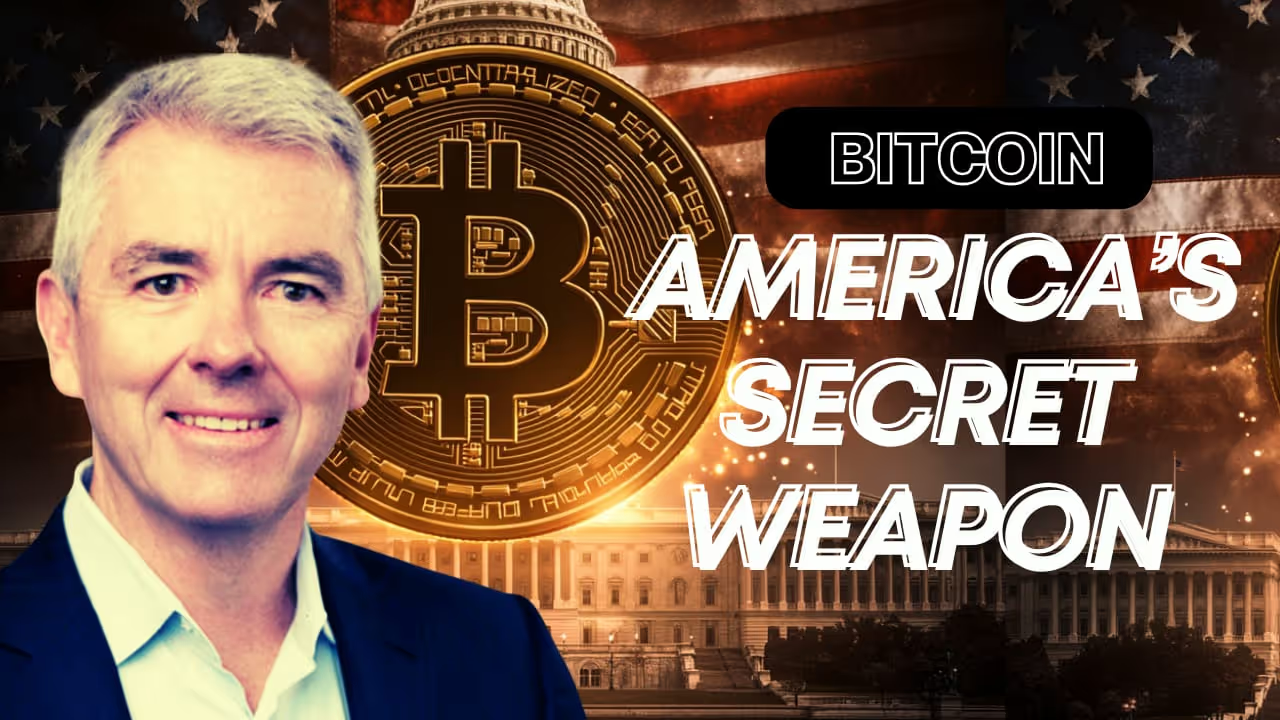
.avif)
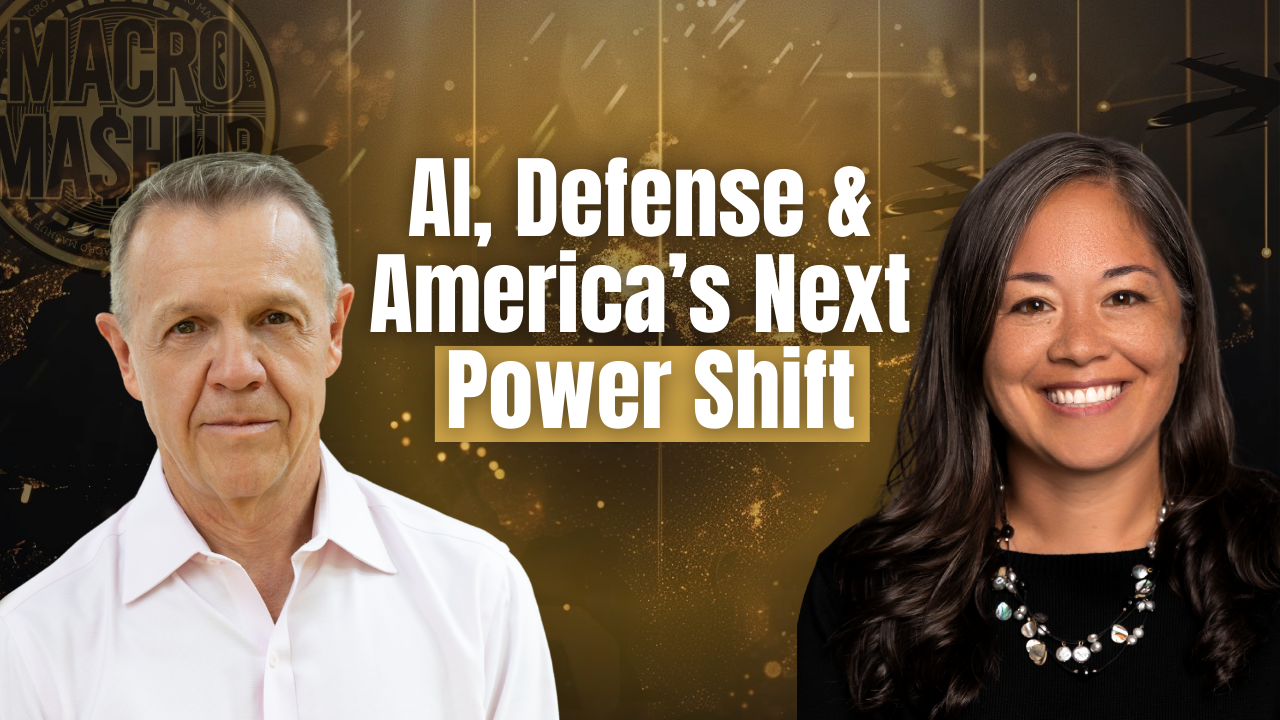
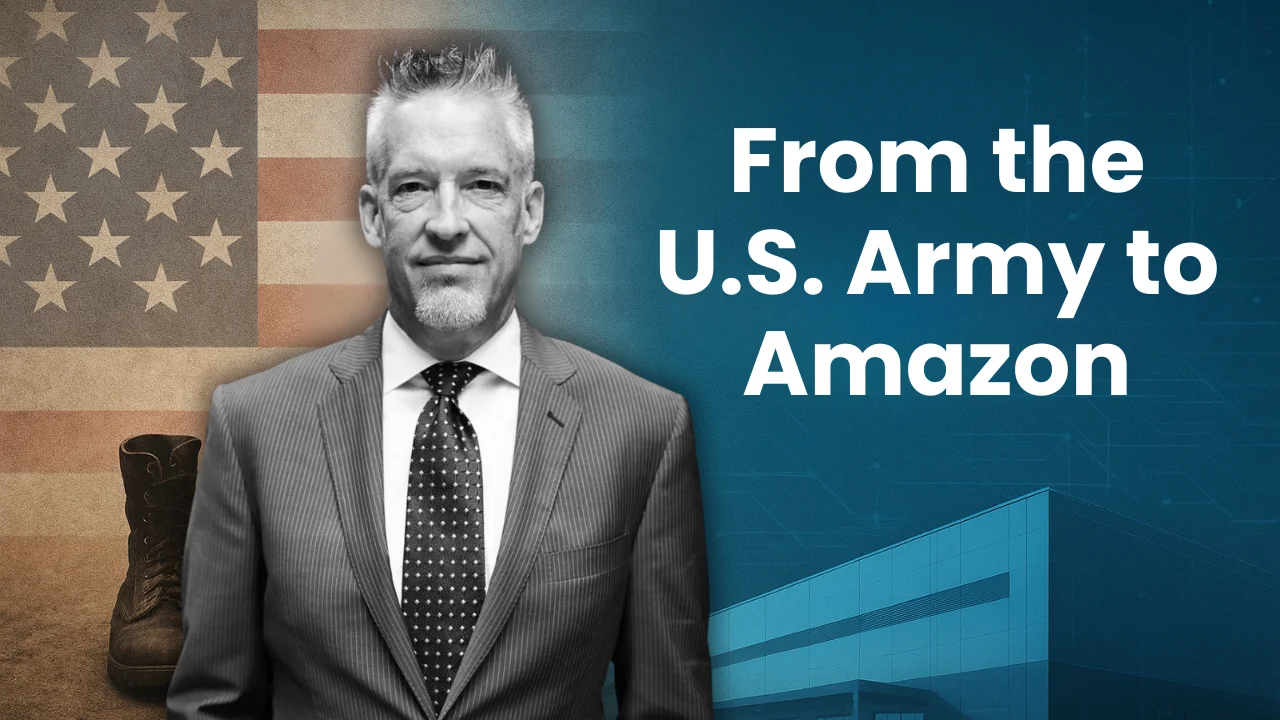

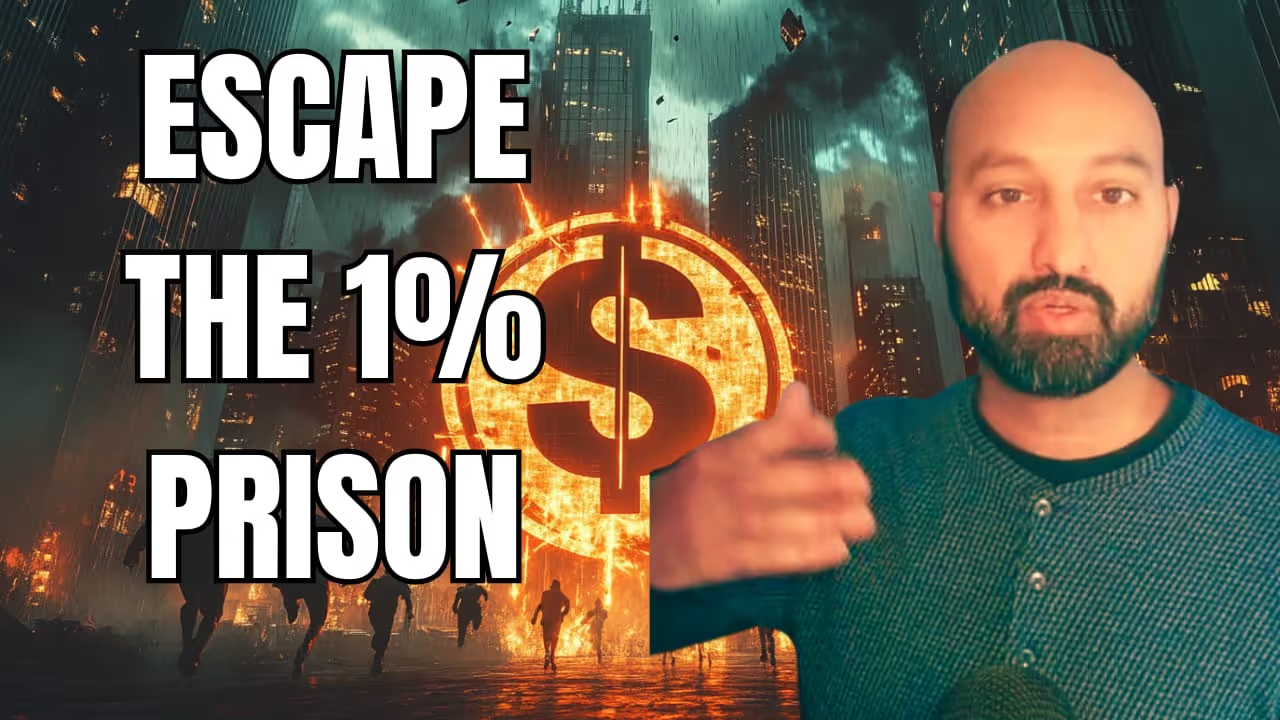
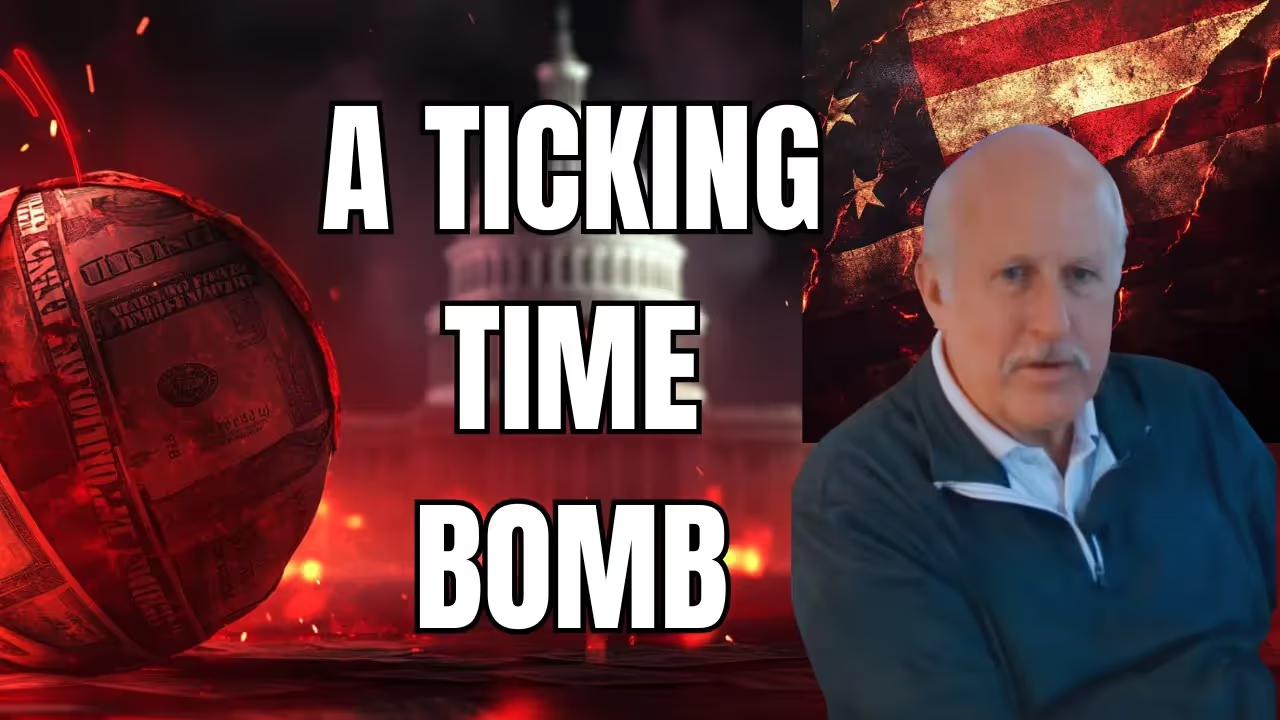
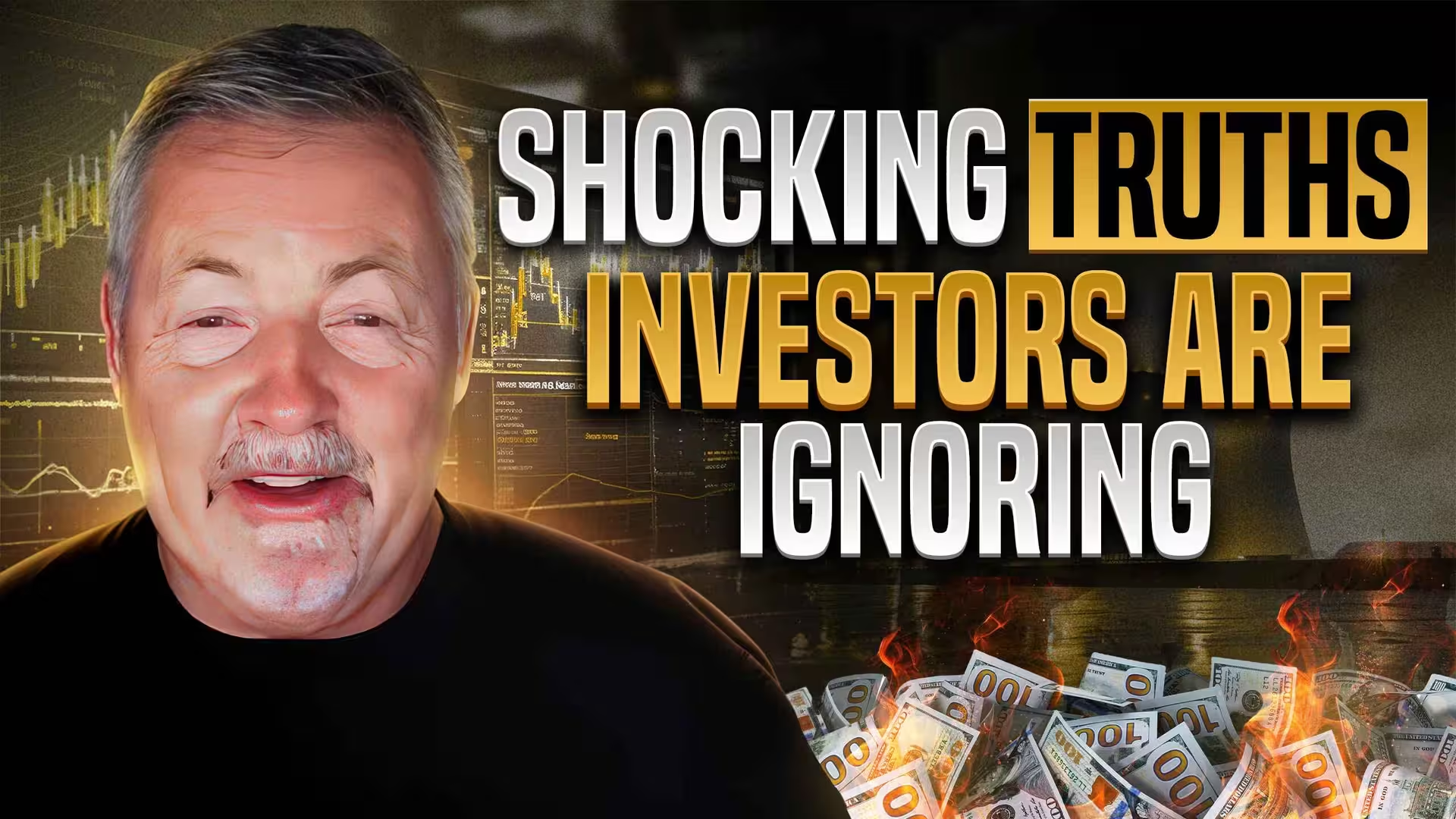
.svg)
.svg)
